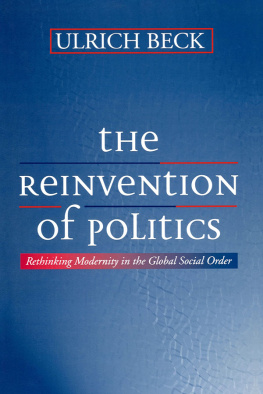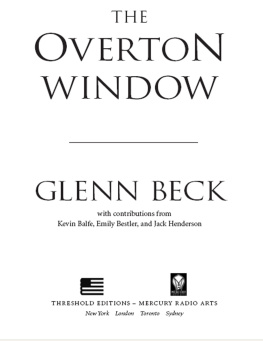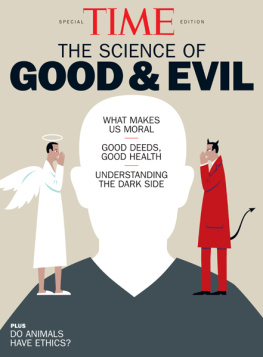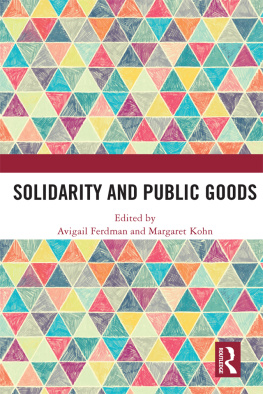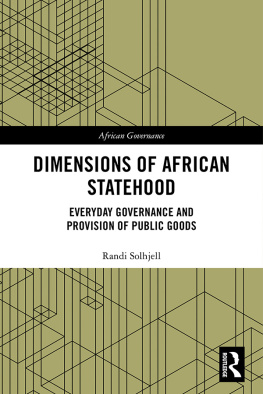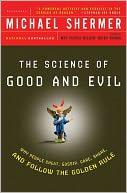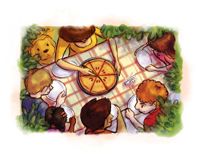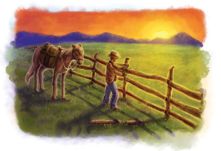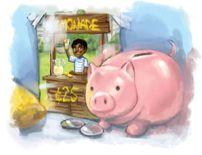Beck - Good vs Good: Why the 8 Great Goods Are Behind Every Good and Bad Decision
Here you can read online Beck - Good vs Good: Why the 8 Great Goods Are Behind Every Good and Bad Decision full text of the book (entire story) in english for free. Download pdf and epub, get meaning, cover and reviews about this ebook. year: 2013, publisher: North Star Books, genre: Home and family. Description of the work, (preface) as well as reviews are available. Best literature library LitArk.com created for fans of good reading and offers a wide selection of genres:
Romance novel
Science fiction
Adventure
Detective
Science
History
Home and family
Prose
Art
Politics
Computer
Non-fiction
Religion
Business
Children
Humor
Choose a favorite category and find really read worthwhile books. Enjoy immersion in the world of imagination, feel the emotions of the characters or learn something new for yourself, make an fascinating discovery.

- Book:Good vs Good: Why the 8 Great Goods Are Behind Every Good and Bad Decision
- Author:
- Publisher:North Star Books
- Genre:
- Year:2013
- Rating:4 / 5
- Favourites:Add to favourites
- Your mark:
Good vs Good: Why the 8 Great Goods Are Behind Every Good and Bad Decision: summary, description and annotation
We offer to read an annotation, description, summary or preface (depends on what the author of the book "Good vs Good: Why the 8 Great Goods Are Behind Every Good and Bad Decision" wrote himself). If you haven't found the necessary information about the book — write in the comments, we will try to find it.
If most of us want to be good, how is it that many of us can seem so bad?
Drawing on the disciplines of brain science, management, moral philosophy, public policy, and psychologyand filled with original research, surveys, and case studies, Good vs Good explains how we each prioritize the 8 Great Goods in completely disparate
order.
In surveys of over 2000 Americans, 1750 gave a unique sequence for their Goods. Yet, when we encounter people with whom we do not share the same prioritization of Goods, our natural inclination is to resist them and their views; leading to boardroom coups, family spats, and lovers quarrels. We may even find those who look at the world in divergent ways as somehow evil. The most important conflicts in human history (Cambodias Killing Fields, Islamic Jihads, civil wars and even presidential elections) are all about how we prioritize the Eight Great Goods.
The way we rank the 8 Goodsexplicit or unspokendetermines who we are and what we will become as individuals, organizations, and nations. So for anyone who is a national leader, an organizational manager or just trying to get along with co-workers or family members, Good vs Good offers insights into what is going on in our minds and in the minds of others.More importantly, this book gives readers a step-by-step game plan for how to bridge the gulf between the Goods and each other. Good vs Good shows us how our differences can actually build understanding and create solutions that may permanently improve our lives and the world around us.
ReviewKirkus Starred Review
A business management expert explains that disagreements and conflicts are not the products of good versus evil but of differences in how individuals prioritize what he calls the Eight Great Goods.
After conducting thousands of interviews and surveys with people from more than 20 cultures, Beck (Japan s Business Renaissance, with Mark Fuller, 2005, etc.) determined that making decisions is, for most people, an attempt to do the right thing or to do good. The decisions people make, Beck says, can be sorted into one of the Eight Great Goods, each illustrated here with interview snippets: Life, Growth, Relationships, Joy, Individuality, Stability, Equality and Belief. Individuals prioritize these goods differently, with great variation; Beck notes that, according to his research, less than 10 percent of a representative sample of Americans shares a pattern of priority with another person. Regardless of this individual variation, Beck cogently and effectively proposes that by using these eight goods to categorize even the most contentious debates, opponents will discover commonalities. Perhaps more importantly, opponents will stop viewing debated issues in terms of good versus evil and instead understand conflicts as a matter of good versus good. Once an individual organizes the eight goods according to his or her own priorities, Beck says decision-making can be accomplished by applying a simple algorithm to the problem at hand. At the organizational and national levels, where individual lists would, he presumes, vary significantly, problems are analyzed based on which goods are most applicable. Using the debate over Arizona s immigration law as an example, Beck illustrates this process by bringing a contentious group of debaters closer to agreement by identifying the goods of Relationships, Equality, Stability and Individuality the goods most affected by the law s passage, he says. Further evidence of how these eight goods factor into decision-making is described in Section III, which examines various nations and the policies that reflect how different countries have prioritized these goods. The book concludes with a section on how leaders can put the Eight Great Goods into practice and develop better, more focused and successful organizations. Due to Beck s conversational writing style, the concepts are made easy to understand without becoming too simplistic. Rather than offering tired analysis of the current trend toward deep polarization, he offers plausible, practicable steps toward a solution that requires little more than a fresh perspective and a willingness to try something new.
An eye-opening, even-keeled theory offering hope to those who disagree. --Kirkus Reviews
Named one of the Best Books of 2013 by Kirkus Reviews.
In its glowing review of Good vs. Good, Kirkus praised a conversational writing style that s easy to understand without becoming too simplistic, along with Beck s program of plausible, practicable steps...that require little more than a fresh perspective and a willingness to try something new.
--Kirkus Authors to Watch - by Jim Franklin
About the AuthorJohn C. Beck is Managing Director of Hult Labs, Professor at Hult International Business School, and President of the North Star Leadership Group, Inc. Previously, he served as the Dean of Globis University -- the first non-Japanese to lead a bilingual professional degree program in Japan and as a Professor and Senior Advisor at the Lee Kuan Yew School of Public Policy in Singapore. He is currently also a Senior Research Fellow at University of Southern California s Annenberg Center for the Digital Future, and formerly Director of International Research at Accenture and a Senior Advisor at Monitor Group and the International University of Japan. He was also a Professor of Global Management & Dean of Research at Thunderbird School of Global Management.
John earned his B.A. in East Asian Studies and Sociology summa cum laude from Harvard University, and was the first graduate of Harvard s integrative Ph.D. program in Organizational Behavior. Dr. Beck is a Visiting Professor at IMD (Switzerland) and IPADE (Mexico). He has also taught at numerous other universities like: Harvard, UCLA, USC, and the Ivey School in Canada.
Dr. Beck served as the senior strategic advisor to the First Prime Minister, Prince Ranariddh, during Cambodia s first three years as a democracy. John previously was Co-Director of the Project on Strategies of the World s Largest 50 Companies for the United Nations. He has served on the Board of Directors of a variety of corporations and universities, including the Monterey Institute of International Studies (California) and Choice Humanitarian, a non-profit organization supporting village development programs in six countries around the world.
Dr. Beck has published hundreds of books, articles, and business reports on the topics of business in Asia, strategic management, globalization, leadership, and technology. His latest book, Good vs. Good is the culmination of a half-decade of research. He has appeared on CNN, CBS Evening News, Fox News and is a frequent guest on National Public Radio. He is quoted and cited in The Wall Street Journal, The Economist, The Financial Times, The New York Times and other leading papers and magazines. His co-authored book, The Attention Economy, was named one of the best ten business books of 2001 by Amazon, Border s and the Library Association. DoCoMo: The wireless tsunami (with Mitchell Wade) was published in September 2002 and acclaimed as an excellent book on leadership. His book (again with Mitchell Wade), Got Game: How a new generation of gamers is reshaping business forever has received wide press coverage.
Beck: author's other books
Who wrote Good vs Good: Why the 8 Great Goods Are Behind Every Good and Bad Decision? Find out the surname, the name of the author of the book and a list of all author's works by series.


